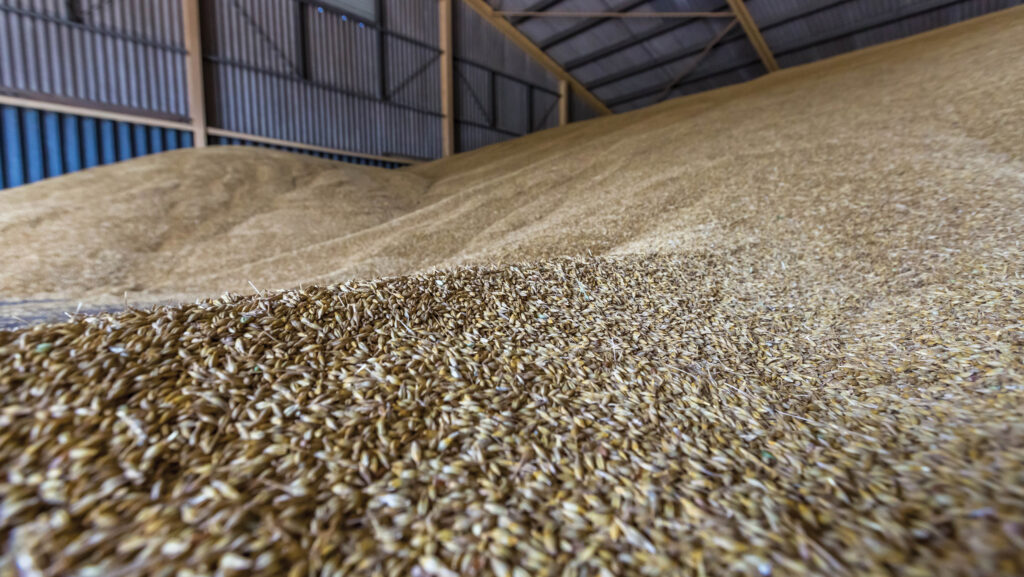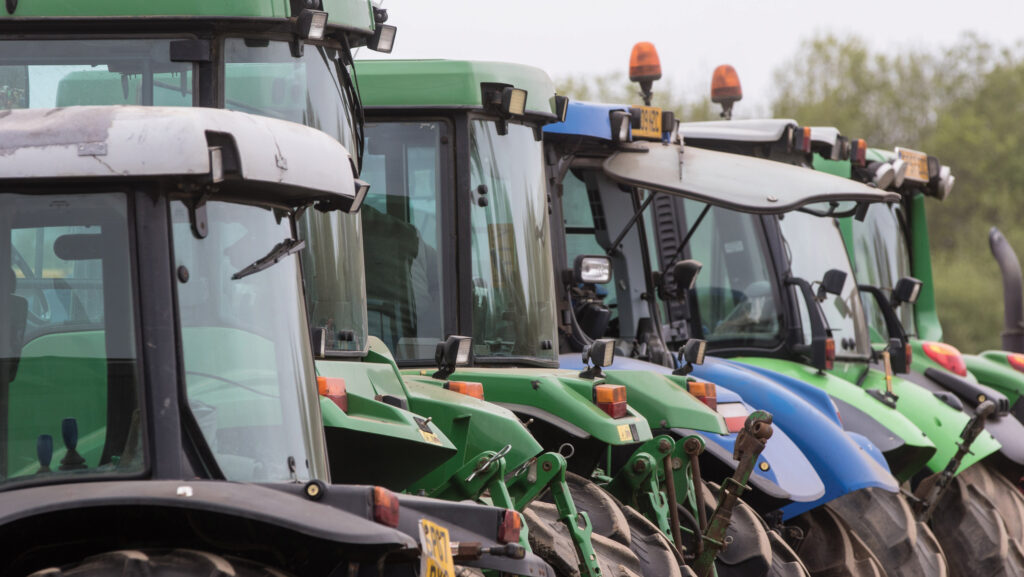Farm cashflow advice as cost and price pressures mount
 © Tim Scrivener
© Tim Scrivener Creditor levels on-farm are rising and bank facilities are stretched as cashflow is further squeezed.
The payment of Basic Payment Scheme (BPS) cash in two instalments this year has helped to some degree, say consultants, but on many farms, the July instalment has already been spent.
The second tranche is due to be paid from 30 September.
However, with lease and HP payment dates often tied to the historic December BPS payment, and tax bills to meet at the end of January, the advice is to revisit cashflow forecasts now to avoid a crunch as the year turns.
Many farms have a March year end, so timely production of the 2024 accounts will allow scope to apply to reduce the January payment on account, say accountants.
See also: Advice on managing borrowings and their costs
If additional borrowing is needed, banks will want to see that thought has gone into applications, and that measures have been taken or have been proposed to address the shortfall, says Robert Sullivan, a director of adviser GSC Grays.
He is not expecting that lenders will take the whole of the pain, and suggests assessing the cost and risk of carrying grain compared with selling in the short term and banking the cash.
“Most farms are borrowing at 2.5 to 3 percentage points over base, so that means they are at about 8%, which, with grain at say £200/t, is £1.33/t a month just for the cost of interest,” says Robert.
While finished sheep and beef prices are firm, keeping flock and herd sizes relatively stable, some producers could question whether to market as stores to avoid winter keep costs, especially where straw is needed, he suggests.
Overheads
At the Farm Consultancy Group’s Chippenham office, consultant Max Sealy says that a review of overheads is in any case a sensible process and can lead to cash savings.
“Focusing on overheads is useful, as it not only produces an annual saving, but where structural change can be made, can help savings in the years to come.”
He suggests key areas to assess include utilities, services, insurance and machinery (see “Machinery questions”).
Electricity and other utilities
This is a confusing market and the first step is to assess exactly what is being used and when, so you can look at improving the efficiency of that use, which might relate to when a slurry separator or an ice builder is operating, for example, says Max.
Clean machines, fans and the like will make a huge difference to running costs.
“Sometimes it’s better to take a higher standing charge to benefit from a better day or night rate,” he says. “Night rates are currently between 14p and 17p/unit, and day rates are at about 25p/unit.”
“Take time to benchmark what you are paying per kW for night and day electricity and standing charge, and get quotes from a reputable broker or shop directly. It is surprising still what differences can be achieved.
“Also, know when your contract is due for renewal. Most farms have multiple meters, so this can be on a range of dates.”
Water
As with power, water use can be assessed and efficiencies sometimes found. Drilling a farm borehole at a cost of £10,000-£15,000 is still cost effective in many cases, says Max.
While this is obviously an expense at a time when cash is tight, it can pay back surprisingly quickly, he says.
“Everyone should consider some form of farm-based supply. Even on heavy based clay soils, it is becoming more possible to extract good quality water.
“Managing leaks and ensuring that water supplies have been used sufficiently are also important.”
Insurance
Insurance is an increasing expense on most farms. Shopping around can pay off but the best outcomes are when this is done well ahead of the renewal date.
“Get copies of your existing policy documents and put these out to reputable brokers who specialise in agricultural insurance,” says Max.
He points out that not only the cost but the quality of service and record on payouts in the event of a claim should be assessed.
“The focus should be on the risks that really hurt you,” he says.
“Look at what you are insuring and for what values – you may be insuring things you don’t need to or other areas where savings can be made – and beware of under insurance.”
‘Just in case’ kit
In terms of immediate cash savings, many farms have some “just in case” machinery or equipment which merits an appraisal of whether it is really needed.
Robert says: “If you haven’t used it in three of the last four seasons, then it’s a luxury you can probably do without.
“It won’t necessarily yield a lot of cash but it helps the case with the bank to show that you are taking steps to address a shortfall.”
Banking
Poor harvest results in many areas mean a big shortfall in expected income, but Robert is not expecting banks to fill the whole of the gap.
“Speak to the bank sooner rather than later, examine what else you can do, and show that you are being constructive about it, whether that is Sustainable Farming Incentive options or something else.
“For example, hedges don’t offer a big payment but are an option which doesn’t impair the earning capacity from production.
“If you’re not integrating herbal leys into your grazing platform, why not? The bank needs to see that you are taking steps.” Personal drawings and lifestyle should be examined too, he says.
Also, don’t delay in talking to HP and lease finance sources whose payments are often due in December to tie in with when BPS cash has traditionally arrived.
There may be room to restructure the payment schedule, says Robert, but not if you wait until December.
In terms of the main banking provision, shopping around can reveal some useful opportunities for restructuring borrowing, says Max, with the service element possibly the most important aspect.
“Refinancing a farming business can be quite complicated, especially if there are diversified enterprises, so you need a bank with people who understand farming,” he says.
Machinery issues

© Tim Scrivener
- An average figure for repairs can easily be distorted by very large single expense items, so this area is becoming increasingly difficult to budget for, says Max Sealy, who suggests compiling a list of kit and discussing with employees how it is operated and cared for, to avoid unnecessary expense
- Consider the options for swapping and changing to different types of machinery. “There are some good deals on swapping machinery, and it may be more cost effective and tax efficient to swap an item of machinery, rather than throwing ‘good money’ after bad [on repairs].”
- Review how machinery repairs and servicing are carried out – are there repairs that you can be trained to do yourself, or which a local self-employed mechanic could do, rather than a mainstream dealer servicing.
- Parts sourcing – shopping around can often produce savings, compared with just turning up at the parts counter and paying whatever price is required.
Source: Farm Consultancy Group
Insurance is an increasing expense on most farms. Shopping around can really pay off here too, but must be done well ahead of the renewal date.
“Get copies of the policy documents from your existing insurer and put these out to other reputable brokers who specialise in agricultural insurance,” says Max, pointing out that not only the cost but the quality of service and record on claims handling and payouts should be assessed.
“The focus should be on the risks that really hurt you,” he says. “Look at what you are insuring and for what values – you may be insuring things you don’t need to or other areas where savings can be made – and beware of under insurance.”
Cash flow advice
- Talk to creditors and arrange a payment schedule if possible/necessary
- If additional banking facilities are going to be needed, approach the bank sooner rather than later. Before doing so, appraise the situation and likely requirements realistically, and do what you can to improve things to show the bank you have considered carefully
- Get year-end accounts done as soon as possible to provide evidence for reducing tax payments on account due in January, where possible
- If making tax payments is going to be a challenge, payment by instalment can be arranged on an individual basis with HMRC
- Review machinery fleet – is there any ‘just in case’ or little used kit available to sell, to realise cash and potentially cut the insurance inventory?
- Traditional timings – many farms operate a similar pattern of buying inputs – question this
- Review landline, mobile and broadband contracts for potentially significant savings
- Ensure you are paying the right amount for subscriptions to organisations and services.
Free advice
BPS claimants in England can get free farm business advice through a range of consultants funded by Defra’s Farming Resilience Fund.
Services include one-to-one consultations, farm visits, reports, and access to webinars and tours.
Adviser firms are listed by county on the gov.uk website.
